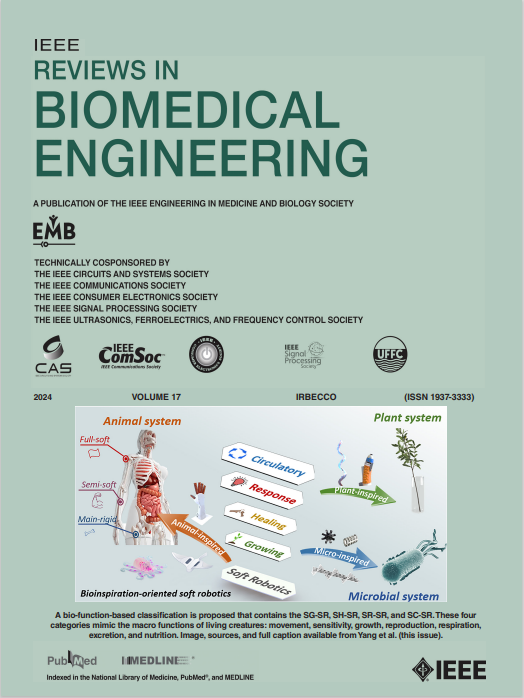Review on Biomedical Sensors, Technologies and Algorithms for Diagnosis of Sleep Disordered Breathing: Comprehensive Survey
IF 17.2
1区 工程技术
Q1 ENGINEERING, BIOMEDICAL
引用次数: 17
Abstract
This paper provides a comprehensive review of available technologies for measurements of vital physiology related parameters that cause sleep disordered breathing (SDB). SDB is a chronic disease that may lead to several health problems and increase the risk of high blood pressure and even heart attack. Therefore, the diagnosis of SDB at an early stage is very important. The essential primary step before diagnosis is measurement. Vital health parameters related to SBD might be measured through invasive or non-invasive methods. Nowadays, with respect to increase in aging population, improvement in home health management systems is needed more than even a decade ago. Moreover, traditional health parameter measurement techniques such as polysomnography are not comfortable and introduce additional costs to the consumers. Therefore, in modern advanced self-health management devices, electronics and communication science are combined to provide appliances that can be used for SDB diagnosis, by monitoring a patient’s physiological parameters with more comfort and accuracy. Additionally, development in machine learning algorithms provides accurate methods of analysing measured signals. This paper provides a comprehensive review of measurement approaches, data transmission, and communication networks, alongside machine learning algorithms for sleep stage classification, to diagnose SDB.诊断睡眠呼吸障碍的生物医学传感器、技术和算法综述
本文对导致睡眠呼吸紊乱(SDB)的重要生理学相关参数的测量技术进行了全面综述。SDB是一种慢性疾病,可能会导致多种健康问题,并增加患高血压甚至心脏病发作的风险。因此,对SDB的早期诊断是非常重要的。诊断前的首要步骤是测量。与SBD相关的重要健康参数可以通过侵入性或非侵入性方法进行测量。如今,随着老龄化人口的增加,甚至在十多年前就需要改善家庭健康管理系统。此外,传统的健康参数测量技术,如多导睡眠图,并不舒适,并给消费者带来额外的成本。因此,在现代先进的自我健康管理设备中,电子和通信科学相结合,通过更舒适、更准确地监测患者的生理参数,提供可用于SDB诊断的设备。此外,机器学习算法的发展提供了分析测量信号的准确方法。本文全面综述了用于诊断SDB的测量方法、数据传输和通信网络,以及用于睡眠阶段分类的机器学习算法。
本文章由计算机程序翻译,如有差异,请以英文原文为准。
求助全文
约1分钟内获得全文
求助全文
来源期刊

IEEE Reviews in Biomedical Engineering
Engineering-Biomedical Engineering
CiteScore
31.70
自引率
0.60%
发文量
93
期刊介绍:
IEEE Reviews in Biomedical Engineering (RBME) serves as a platform to review the state-of-the-art and trends in the interdisciplinary field of biomedical engineering, which encompasses engineering, life sciences, and medicine. The journal aims to consolidate research and reviews for members of all IEEE societies interested in biomedical engineering. Recognizing the demand for comprehensive reviews among authors of various IEEE journals, RBME addresses this need by receiving, reviewing, and publishing scholarly works under one umbrella. It covers a broad spectrum, from historical to modern developments in biomedical engineering and the integration of technologies from various IEEE societies into the life sciences and medicine.
 求助内容:
求助内容: 应助结果提醒方式:
应助结果提醒方式:


